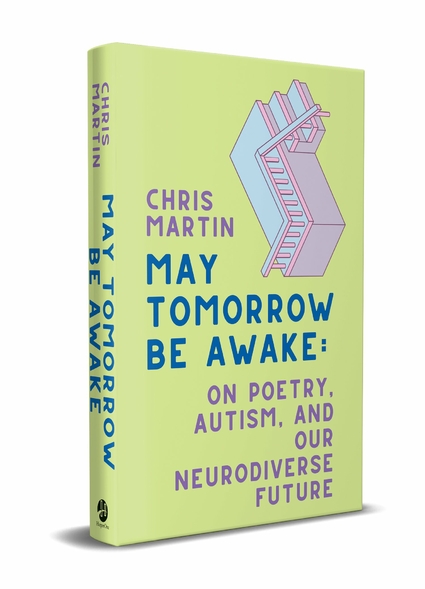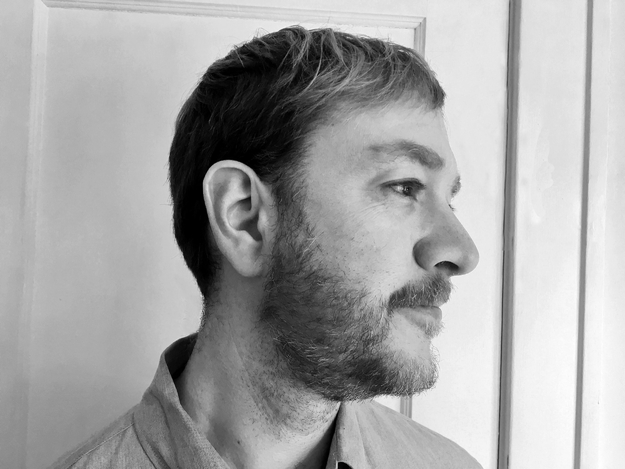Chris Martin is the founder of Unrestricted Interest, a poetry community and educational platform dedicated to the non-neurotypical minds and their creativities. He also curates the Multiverse, a literary series featuring the different ways of languaging that emerge from neurodivergent cultures. As an autistic, Martin is devoted to promoting disability justice, and this devotion is inseparable from his passion for poetry and creative writing. He does not only let his own talent shine but has been sharing his creative methods with more people on the spectrum and making it a collective project of liberation and creativity.
Listening with Deeper Ears
In 2022, a book called May Tomorrow Be Awake: On Poetry, Autism and Our Neurodiverse Future (Harper One) is released, which features the works Martin and his community creates through a mutual teaching and learning process. When talking about his approaches, he mentions the art of hearing and deep listening from time to time, which helps his community escape from the student-teacher binary in classrooms, making space for “the expressivity of tics and stims, of grounding sounds and long annotative discharging hums”, and the unexpected knowledge to arrive. In Martin’s words, it is a process of leaving the writers’ selves and their lines to surface. “[...]it’s also playful, like tennis, because the rally involves a fully corporeal mode of listening to each other as unexpected knowledge caroms back and forth between us, sometimes gaining momentum, sometimes slowing down as meaning is sliced and curved.” What they create will “not be corrected, critiqued, professionalized, or commodified”, and all the support goes to helping the writers convey their thoughts without making concessions in their unique expression.
May Tomorrow Be Awake: On Poetry, Autism and Our Neurodiverse Future - by Chris Martin 
Less Than Human? Too Alive?
Martin recognizes the political significance of the writing community in refusing neurotypical modes of knowledge. While mass discourse too often frame autism as a deficit and the autistics as lacking social reciprocity, ability to understand rhetorics, imagination in play, or as less humane, the practice of the writing group contests these tropes and asks us to rethink empathy: are the autistics less empathetic, or is the existing society too neuronormative for more profound understandings to happen? Reality is that instead of lacking empathy, autistics often experience an excess of it, which gets them into an emotionally non-functional state. Only when we deal with it with care can we get closer to their minds and recognize their transformative abilities.
“Autistic life is so often too alive for other people,”
Martin says,
“Too alive to its own physicality. Too alive to the movement of water and light. Too alive to the wild soundscape of echoing architectures without and within the body. The question becomes, ‘Can we be too alive together?’”
Mutual Flourishing and the Environmental Agenda
What the question evokes in me is that even if the world is too exuberant, too shrieky or too congested for us, it doesn’t mean that we should leave us drowned in this gravy of tension. We should never abandon the space to give out our chromes or frequencies, and we can build this space together. Sometimes we need a shelter, a “strategic opacity” to preserve who we are; and as we find that safe ground, we are also able to “unshun” ourselves and welcome a “transparent opening”. Poetry is the flow and the ship on which Martin and his community sail to a neurodivergent future. In this process, they already proved that reciprocity is at work among neurodivergent people. From them we refresh our understanding of relationality–it’s less about the adaptability to predetermined social rules but more about self agency, serendipity, the rhythms from back and forth, and reconnection to something more than human.
Nature is a recurring theme in the works by the community, and they refresh a lot of their knowledge on neurodivergent minds in interacting with and writing about nature. They find out that “autistic thinkers welcome the participation of animals, trees, objects, and even weather into our human world of thought and action”; and while neurotypical brains “too often miss or overlook what’s really going on around us”, “that’s what autistic writers do naturally”.
“They perceive widely, warmly, and with an earnest curiosity that treats the more-than-human world as a phenomenal network to be engaged, not a menu of resources to be exploited”.
Martin’s community draws inspiration from the non-human, or rather, from the intimate connection they find themselves with language and the more-than-human world, which is “inherently ecological”. Such a kind of practice makes us rethink nature, disabled bodies and poems as active agents in the ecological agenda.
Reference
The Listening World: Neurodivergent Voices for a More-Than-Human World https://lithub.com/the-listening-world-neurodivergent-voices-for-a-more-than-human-world/
Can We Be Too Alive Together? A Conversation with Chris Martin on Poetry, Autism, and Our Neurodivergent Future https://therumpus.net/2022/09/26/can-we-be-too-alive-together-a-conversation-with-chris-martin-on-poetry-autism-and-our-neurodivergent-future/
